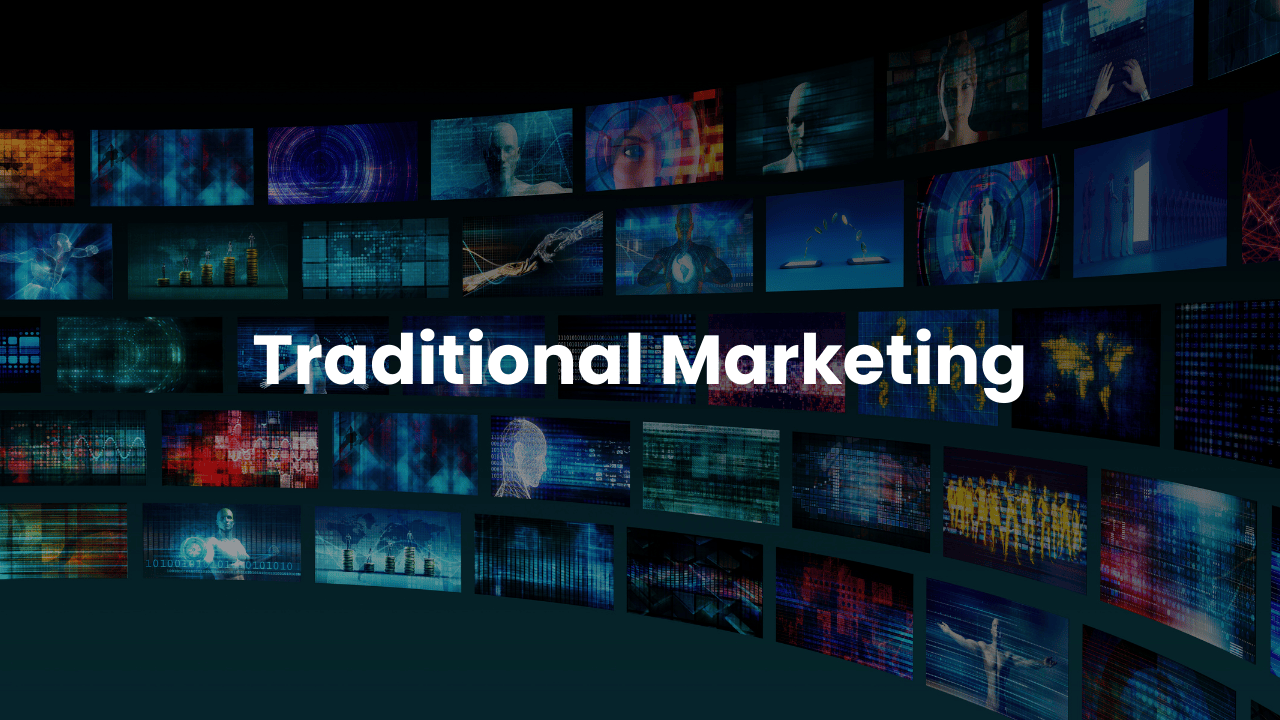Sat, 30 Aug 25
Why Traditional Marketing is Failing in 2025
Where Strategy Meets Clarity

Consumer trust isn't just declining—it's collapsing at an unprecedented rate. Our recent global analysis reveals that brand trust scores have dropped 34% since 2019, with 75% of consumers ready to abandon brands after a single data breach. But here's what most businesses are missing: this isn't just about bad experiences or poor customer service. This is a fundamental shift in human psychology that's rewiring how consumers evaluate, choose, and remain loyal to brands.
The Trust Revolution: From Blind Faith to Active Skepticism
For decades, marketing operated on a simple principle: tell consumers what to think, and they'll believe you. Coca-Cola was happiness. Apple was innovation. Nike was athletic excellence. Consumers accepted these narratives with relatively little questioning.
Those days are over.
Today's consumers arrive at every brand interaction with what psychologists call "hypervigilant skepticism"—a psychological state where the brain actively searches for deception signals rather than accepting claims at face value. This shift didn't happen overnight. It's the result of multiple trust betrayals across industries, amplified by social media's ability to expose corporate failures instantly and globally.
The Neuroscience of Modern Distrust
When consumers encounter marketing messages today, their brains process information differently than they did even five years ago. Neurological studies show that exposure to repeated corporate scandals, data breaches, and "fake news" has rewired neural pathways responsible for trust evaluation.
The amygdala—our brain's threat detection center—now fires more rapidly when processing brand communications. What this means practically is that consumers' brains are literally programmed to look for danger signals in marketing messages. Claims that once seemed credible now trigger immediate skepticism responses.
This explains why traditional advertising metrics are plummeting across industries. It's not that ads aren't reaching people—it's that people's brains are rejecting the messages before conscious evaluation even begins.
The Three Pillars of Modern Consumer Trust
Our behavioral research has identified three critical factors that determine whether consumers will trust a brand in 2025:
1. Transparency Proof Points
Modern consumers don't want to hear about your values—they want to see evidence of them. This goes beyond corporate social responsibility statements or sustainability reports that few consumers read. Today's trust is built on readily visible, easily verifiable proof points.
Consider Patagonia's approach: instead of simply claiming environmental consciousness, they publish detailed supply chain information, showcase repair centers, and actively discourage unnecessary purchases. Their "Don't Buy This Jacket" campaign violated every traditional marketing principle but built unprecedented consumer trust because it demonstrated genuine commitment over profit maximization.
The psychological principle at work here is "costly signaling"—when brands take actions that appear to work against their immediate financial interests, consumers interpret this as evidence of authentic commitment.
2. Third-Party Validation
With 89% of Gen Z consumers fact-checking brands in real-time while shopping, third-party validation has become essential for trust building. But this extends far beyond traditional testimonials or endorsements.
Modern consumers seek validation from multiple sources: independent reviewers, regulatory bodies, industry watchdogs, and most importantly, other consumers who have no financial incentive to promote the brand. User-generated content now drives 3.2 times higher conversion rates than brand-created content because it carries the psychological weight of unbiased testimony.
The most trusted brands today actively facilitate negative feedback and publicly address criticism. This counterintuitive approach works because it signals confidence and transparency—two critical trust indicators.
3. Behavioral Consistency
Perhaps most critically, consumers now track whether brands' actions align with their stated values over time. This isn't just about avoiding scandals—it's about demonstrating consistent commitment to claimed principles across all business decisions.
Target's recent decision to abandon DEI initiatives after previously championing them illustrates how behavioral inconsistency destroys trust. Regardless of one's political views, the psychology of trust requires predictable, value-consistent behavior. When brands appear to change core values based on external pressure, consumers interpret this as evidence that the values were never genuine.
The Death of Demographic Trust Patterns
Traditional marketing relied heavily on demographic-based trust assumptions: older consumers were more trusting, higher-income consumers were less price-sensitive, etc. Our research shows these patterns are evaporating.
Trust now correlates more strongly with individual experiences and values alignment than with demographic characteristics. A 65-year-old who's experienced data breaches may be more skeptical than a 25-year-old who hasn't. A wealthy consumer who values sustainability may abandon luxury brands over environmental concerns.
This shift demands a move from demographic targeting to behavioral and psychographic targeting based on trust patterns and value systems rather than age, income, or location.
The Economic Impact of Trust Collapse
The trust crisis isn't just a marketing problem—it's an economic one. Our analysis shows that high-trust brands command average price premiums of 23% compared to low-trust competitors. More significantly, customer acquisition costs for trusted brands are 40% lower because word-of-mouth referrals remain the most cost-effective marketing channel.
Conversely, brands with damaged trust face what we call "the skepticism tax"—higher marketing costs, increased customer service expenses, and reduced customer lifetime value as consumers remain perpetually ready to switch to alternatives.
Building Trust in the Post-Truth Era
For businesses navigating this new reality, success requires abandoning traditional "push" marketing in favor of "pull" strategies that attract rather than convince consumers.
Start with radical transparency. Share information that competitors hide: sourcing challenges, pricing breakdowns, failure rates, improvement efforts. This vulnerability signals authenticity in ways that polished marketing messages cannot.
Embrace imperfection publicly. Brands that acknowledge mistakes, share learning processes, and demonstrate continuous improvement build stronger trust than those claiming perfection. The psychological principle of "pratfall effect" shows that admitting minor flaws actually increases trustworthiness.
Create verification opportunities. Make it easy for consumers to independently verify your claims. Provide supply chain visibility, third-party certifications, and direct access to the people behind your products or services.
Maintain consistency over time. Trust builds slowly but dies quickly. Every business decision should be evaluated against stated values, because consumers are watching and remembering.
The Future of Trust-Based Marketing
The brands that thrive in 2025 and beyond will be those that understand trust as a psychological phenomenon rather than a marketing challenge. They'll invest in trust-building systems rather than trust-claiming messages. They'll measure trust indicators as carefully as they measure sales metrics.
Most importantly, they'll recognize that in an era of infinite choice and instant information, trust isn't just a competitive advantage—it's the foundation of sustainable business success.
The question isn't whether your brand will adapt to this new trust paradigm. The question is how quickly you'll make the shift before consumer skepticism makes traditional marketing approaches not just ineffective, but actively counterproductive.
At Blanc Research, we help brands understand and build authentic consumer trust through behavioral psychology insights and data-driven strategies. To learn more about our consumer trust research, contact us at [contact information].


